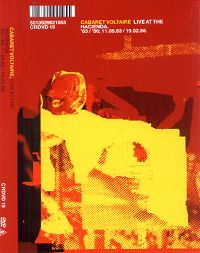 Months of wrestling with a DVD player which didn't initially read this disc has finally paid off and the results were well worth all the fuss. The first DVD to surface from Cabaret Voltaire takes two aural/visual snapshots of only slightly different periods in their evolution, recorded live in Manchester's infamous club.
Months of wrestling with a DVD player which didn't initially read this disc has finally paid off and the results were well worth all the fuss. The first DVD to surface from Cabaret Voltaire takes two aural/visual snapshots of only slightly different periods in their evolution, recorded live in Manchester's infamous club.
 I bought this album after being captivated by the band name and albumtitle, having no prior knowledge about them. Both had a sonorousquality which made me intensely curious to hear what such a band wouldsound like. To my delight, in doing so, I discovered what was to becomeone of my favorite albums of 2002. Sam Beam, who is almost solelyresponsible for the writing, performance, production and recording of'The Creek Drank the Cradle', creates pleasantly unpolished songs usinglittle more than an acoustic guitar, banjo and his own delicate vocalsthat belie their no-frills approach with a rich, seductive sound. Beamclearly takes influence from Nick Drake and Tim Buckley, but trulycarves his own niche in terms of his folk stylings. This album,however, definitely is not a "folk record," but reaches far beyond,ranging from lullabies to ballads to narrative fragments of memories.The American Deep South features prominently in the lyrical imagery,accented by an eerie romanticism. Beam, who hails from the Miami area,seems to be yearning for a South removed from beaches and nightclubs,on tracks like the twangy "The Rooster Moans" and the haunting "Upwardover the Mountain." There is a purity in the simplicity of Iron &Wine that is so refreshing that 'The Creek Drank the Cradle'unsurprisingly appeals to true music lovers of diverse tastes. As SamBeam's moniker suggests, his music is both weighty and intoxicating.
I bought this album after being captivated by the band name and albumtitle, having no prior knowledge about them. Both had a sonorousquality which made me intensely curious to hear what such a band wouldsound like. To my delight, in doing so, I discovered what was to becomeone of my favorite albums of 2002. Sam Beam, who is almost solelyresponsible for the writing, performance, production and recording of'The Creek Drank the Cradle', creates pleasantly unpolished songs usinglittle more than an acoustic guitar, banjo and his own delicate vocalsthat belie their no-frills approach with a rich, seductive sound. Beamclearly takes influence from Nick Drake and Tim Buckley, but trulycarves his own niche in terms of his folk stylings. This album,however, definitely is not a "folk record," but reaches far beyond,ranging from lullabies to ballads to narrative fragments of memories.The American Deep South features prominently in the lyrical imagery,accented by an eerie romanticism. Beam, who hails from the Miami area,seems to be yearning for a South removed from beaches and nightclubs,on tracks like the twangy "The Rooster Moans" and the haunting "Upwardover the Mountain." There is a purity in the simplicity of Iron &Wine that is so refreshing that 'The Creek Drank the Cradle'unsurprisingly appeals to true music lovers of diverse tastes. As SamBeam's moniker suggests, his music is both weighty and intoxicating.samples:
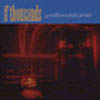 If Thousands is Christian McShane and Aaron Molina from Duluth, Minnesota, who having decided to depart from their respective backgrounds in classical performance and punk have collaborated to attempt something quite different. The result is a sound grounded less on performance and based much more on assembly, repetition, and duration. With the help of Alan Sparhawk, who produced and mixed the album, McShane and Molina have built resonant instrumental pieces that sound oceanic in their tendency to roll together different recurring samples with the musicians' work, producing a reverberating blend of fluid sound.
If Thousands is Christian McShane and Aaron Molina from Duluth, Minnesota, who having decided to depart from their respective backgrounds in classical performance and punk have collaborated to attempt something quite different. The result is a sound grounded less on performance and based much more on assembly, repetition, and duration. With the help of Alan Sparhawk, who produced and mixed the album, McShane and Molina have built resonant instrumental pieces that sound oceanic in their tendency to roll together different recurring samples with the musicians' work, producing a reverberating blend of fluid sound.
Mute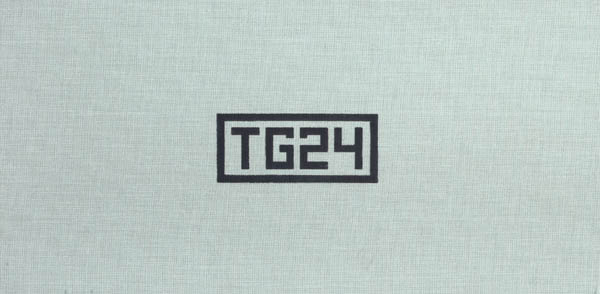 If 2002 has been a generally mediocre year for releases, it sure ashell is not going out without kicking and screaming. '24 Hours' arrivedon Monday, December 22nd, and, while I haven't had the time to pickthrough every last second of music on this 25-CD set (yes, it turns outto be 25 CDs for those who mail-ordered it!), everything so far hasbeen incredible. While the Sex Pistols and The Clash were "dressing"themselves as punks, their music was easily digestible pop/rock tuneswith enough of an attitude edge for the kids to dig. ThrobbingGristle's approach was almost the entire opposite, as the band dressedrespectfully on album covers and played various art halls (in additionto boys schools and rock clubs), but made music with far lesscommercial potential. Every concert lasted exactly 60 minutes,controlled by a timer which would cut the power on the stage at exactly60 minutes no matter what point the band were at. Every show wasrecorded and committed to cassette tape, and for this box, it seems aseverything is here from the very first to the very last second of eachshow.
If 2002 has been a generally mediocre year for releases, it sure ashell is not going out without kicking and screaming. '24 Hours' arrivedon Monday, December 22nd, and, while I haven't had the time to pickthrough every last second of music on this 25-CD set (yes, it turns outto be 25 CDs for those who mail-ordered it!), everything so far hasbeen incredible. While the Sex Pistols and The Clash were "dressing"themselves as punks, their music was easily digestible pop/rock tuneswith enough of an attitude edge for the kids to dig. ThrobbingGristle's approach was almost the entire opposite, as the band dressedrespectfully on album covers and played various art halls (in additionto boys schools and rock clubs), but made music with far lesscommercial potential. Every concert lasted exactly 60 minutes,controlled by a timer which would cut the power on the stage at exactly60 minutes no matter what point the band were at. Every show wasrecorded and committed to cassette tape, and for this box, it seems aseverything is here from the very first to the very last second of eachshow.
The original 24 Hours box consisted of 24 cassettes (IRC 2through IRC 24 and IRC 26—see the web sitefor more specific details) plus two additional tapes of radiointerviews. (Look for it at online auctions for over a thousand dollarson average!) For the CD box release, 25 cassettes were remastered byChris Carter (the original master of IRC26 was lost but later recoveredafter the project was underway with IRC29 in its place). It'sfascinating to actually hear Genesis in his role as entertainer,front-man and stand-up comic, going from a jaded youngter in theearlier recordings, poking fun at the same-ness of Johnny Rotten songsto a more clever prankster by the end, leading crowds on, completelybullshitting them with an honest composure. The music also evolved overthe few years captured here, from the earlier years of making tons ofnoise to cold-calculated compositions, where band members Chris, Coseyand Sleazy would pay closer attention to each other, opting to remainsilent to let other parts shine through. The mastereing job by ChrisCarter is far better than I have even dreamed of, with many recordingsin stereo, either with different instrument assignment on either sideor a true stereo recording, most likely depending on what type ofmixing desk was available at the show. The included tidbits are alsonice to have too, but since this box cost so much, frankly I'm afraidto lose any of the stickers, pins, pictures, or patches. At theapproximate $220 price, however, this is something almost exclusivelyfor the fans. If I were to have any complaints at this point, it wouldbe for the lack of inclusion of the radio interviews, but there's stillmore live recordings yet to get the Chris Carter remastering attentionand resurface, so I'll be patient. This is enough music to hold me fora long time.
samples:
- Introduction/Very Friendly (from IRC04)
- Five Knuckle Shuffle (from IRC15)
- Weapons Training/See You Are (from IRC20)
- The World is a War Film (from IR26)
 The plan was to record an EP of cover songs. The coolest singer in rock music wanted to pay tribute to some of her influences, including Nina Simone, Patti Smith's epochal Radio Ethiopia album and Neutral Milk Hotel's "Comely." Then she changed her mind and instead recorded three new songs, an old Uzi number that never made it onto the classic Sleep Asylum and a couple of covers. The fans lucked out, as her songs are drastically superior to the ones she did eventually cover.
The plan was to record an EP of cover songs. The coolest singer in rock music wanted to pay tribute to some of her influences, including Nina Simone, Patti Smith's epochal Radio Ethiopia album and Neutral Milk Hotel's "Comely." Then she changed her mind and instead recorded three new songs, an old Uzi number that never made it onto the classic Sleep Asylum and a couple of covers. The fans lucked out, as her songs are drastically superior to the ones she did eventually cover.
Gravity / Sub Pop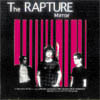 Yet another in a recent onslaught of bands with names beginning with"the", The Rapture are a noisy three-piece post-post-punk outfit fromNew York City. The Rapture are riding a wave of trendy postpunkrevivalism, but have managed to emerge with a fairly unique identityand an engaging, dynamic energy on record. Judging by this first album,their recent SubPop EP, and the current underground hit 12" single "TheHouse of Jealous Lovers" on DFA, The Rapture have enough of their ownto add to their obvious early-80's influences to make their musicworthwhile. Bolstered by the strength of their DFA dance single, theirfirst album 'Mirror', which was originally released almost two yearsago, has been re-released on the Gravity Records imprint. This firstalbum finds The Rapture trio in a nascent form, producing gloriouslylow-fi noisy shit most closely resembling The Pop Group's 'Y' albumsodomizing an early Cure record. The album opens with the short, darkpiano dirge "in finite clock!" This quickly segues into the sound ofpolice sirens and a wall of scratchy, fuzzy garage noise on"NOTES>>>". The angular guitars and driving beat support thethroat-stripping lyrical screams, with the repeated chorus "I'm takingnotes from the underground..." The next track "OLiO" takes a cue fromearly Cure, with its goth-as-hell bassline and plaintive lyrics.Although I realize that doesn't sound like a recommendation, this is anawesome song. The next couple tracks utilize keyboard effects and drummachine, adding textural elements to The Rapture's spare, grittygoth-punk anti-songs. After another dark, atmospheric piano melody, thelast track is an appropriately hyperactive and chaoticremix/interpolation of "Notes" by Kid606. 'Mirror' is an impressivelynasty slice of raw punk-funk, and I would highly recommend like-mindedfolk waste no time in seeking it out.
Yet another in a recent onslaught of bands with names beginning with"the", The Rapture are a noisy three-piece post-post-punk outfit fromNew York City. The Rapture are riding a wave of trendy postpunkrevivalism, but have managed to emerge with a fairly unique identityand an engaging, dynamic energy on record. Judging by this first album,their recent SubPop EP, and the current underground hit 12" single "TheHouse of Jealous Lovers" on DFA, The Rapture have enough of their ownto add to their obvious early-80's influences to make their musicworthwhile. Bolstered by the strength of their DFA dance single, theirfirst album 'Mirror', which was originally released almost two yearsago, has been re-released on the Gravity Records imprint. This firstalbum finds The Rapture trio in a nascent form, producing gloriouslylow-fi noisy shit most closely resembling The Pop Group's 'Y' albumsodomizing an early Cure record. The album opens with the short, darkpiano dirge "in finite clock!" This quickly segues into the sound ofpolice sirens and a wall of scratchy, fuzzy garage noise on"NOTES>>>". The angular guitars and driving beat support thethroat-stripping lyrical screams, with the repeated chorus "I'm takingnotes from the underground..." The next track "OLiO" takes a cue fromearly Cure, with its goth-as-hell bassline and plaintive lyrics.Although I realize that doesn't sound like a recommendation, this is anawesome song. The next couple tracks utilize keyboard effects and drummachine, adding textural elements to The Rapture's spare, grittygoth-punk anti-songs. After another dark, atmospheric piano melody, thelast track is an appropriately hyperactive and chaoticremix/interpolation of "Notes" by Kid606. 'Mirror' is an impressivelynasty slice of raw punk-funk, and I would highly recommend like-mindedfolk waste no time in seeking it out.
samples:
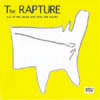 The Rapture's new EP, out recently on SubPop, bears little resemblenceto the aggressively dark and abrasively gothic trio that recorded'Mirror'. They have a new bassist, and two years down the line theyhave dropped the Bauhaus posturing and stripped their sound down to aleaner, meaner brand of art punk, influenced by Wire and Gang of Four.Gone are the moody dirges and dark dance anthems. They have beenreplaced with upbeat, politically charged songs with a tight drumming,clipped guitars and repetitive lyrical rants. The songs have gotten abit longer and some contain abrupt tempo changes and otherself-consciously artsy techniques. The production is much cleaner, aswell. The title track opens the EP with its high-strung rhythms andear-splitting guitar. The zealously screamed vocals recall MarkStewart's clipped verses in The Pop Group's first two albums. In"Modern Romance" the vocals are pushed to the background as theear-splittingly non-melodic guitar lines take precedence. "Caravan" isa tense track, with a rhythm section that keeps phasing in and out ofexistence. The only song with anything resembling a melody isappropriately titled "The Pop Song", but the cacophonous andrepetitious refrain of "You're growing older/You're growing older"keeps the song from approaching any kind of mainstream aspirations."Confrontation" closes the disc, with a relentless, distortion-heavybassline and tribal dance rhythms recalling 23 Skidoo. This EP is asgood as 'Mirror' and points to a new direction for the band. I can'twait to hear their upcoming full-length.
The Rapture's new EP, out recently on SubPop, bears little resemblenceto the aggressively dark and abrasively gothic trio that recorded'Mirror'. They have a new bassist, and two years down the line theyhave dropped the Bauhaus posturing and stripped their sound down to aleaner, meaner brand of art punk, influenced by Wire and Gang of Four.Gone are the moody dirges and dark dance anthems. They have beenreplaced with upbeat, politically charged songs with a tight drumming,clipped guitars and repetitive lyrical rants. The songs have gotten abit longer and some contain abrupt tempo changes and otherself-consciously artsy techniques. The production is much cleaner, aswell. The title track opens the EP with its high-strung rhythms andear-splitting guitar. The zealously screamed vocals recall MarkStewart's clipped verses in The Pop Group's first two albums. In"Modern Romance" the vocals are pushed to the background as theear-splittingly non-melodic guitar lines take precedence. "Caravan" isa tense track, with a rhythm section that keeps phasing in and out ofexistence. The only song with anything resembling a melody isappropriately titled "The Pop Song", but the cacophonous andrepetitious refrain of "You're growing older/You're growing older"keeps the song from approaching any kind of mainstream aspirations."Confrontation" closes the disc, with a relentless, distortion-heavybassline and tribal dance rhythms recalling 23 Skidoo. This EP is asgood as 'Mirror' and points to a new direction for the band. I can'twait to hear their upcoming full-length.
samples:
Staubgold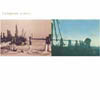 F.S. Blumm begins his second full-length album with measured, confidentguitar strumming and fretboard squeaks in a decidedly jazzy numbercalled "Folge." Despite the confidence, the song ends up feeling alittle hollow by the end, as if it never really reached the point whereit had intended to go, a disorientation which is symptomatic of thewhole album. Frank Schultge's polyinstrumental improvisations tend tomeander, sometimes aimlessly. The mood of 'Ankern' is largelyimprovisational, not directional or determined. F.S. Blumm createscompositions which rely on repeated melodic statements that change andflow into other statements. The repetitions between these statementsare like the sips of coffee between bites of morning toast (whole wheatwith the strawberry jam): moderately enjoyable and somewhat necessaryto drench the palette, but once the coffee sits around for awhile, itneeds refreshing. Blumm's music feels lighter on this release than onhis debut 'Mondkuchen.' It hops and it skips without ever reallyplanting its feet firmly in the ground to take a stand. The songs withthe most substance to them, like "Sprung," "Tal," and "Fehlsprung," allshare a cello which gives them some body, some voice, some resonance.These three songs get better with each listen, whereas most of theother songs have a tendency to be too playful and less focused and theyeventually evanesce like vapor. Of the more playful songs, "Abgebildet"is the most memorable with its brilliant guitar lines unapologeticallyending with a sudden cessation. The most delightful sound I heard onthe album was in the background of "Fehlsprung" towards the end, where,if you listen closely enough, you can hear what sounds like thecroakings of a castrated bull frog whose bellows skim across the pondlike a skipping stone. Despite the title, 'Ankern" does not feelanchored enough to hold much ground against Blumm's previous strongwork.
F.S. Blumm begins his second full-length album with measured, confidentguitar strumming and fretboard squeaks in a decidedly jazzy numbercalled "Folge." Despite the confidence, the song ends up feeling alittle hollow by the end, as if it never really reached the point whereit had intended to go, a disorientation which is symptomatic of thewhole album. Frank Schultge's polyinstrumental improvisations tend tomeander, sometimes aimlessly. The mood of 'Ankern' is largelyimprovisational, not directional or determined. F.S. Blumm createscompositions which rely on repeated melodic statements that change andflow into other statements. The repetitions between these statementsare like the sips of coffee between bites of morning toast (whole wheatwith the strawberry jam): moderately enjoyable and somewhat necessaryto drench the palette, but once the coffee sits around for awhile, itneeds refreshing. Blumm's music feels lighter on this release than onhis debut 'Mondkuchen.' It hops and it skips without ever reallyplanting its feet firmly in the ground to take a stand. The songs withthe most substance to them, like "Sprung," "Tal," and "Fehlsprung," allshare a cello which gives them some body, some voice, some resonance.These three songs get better with each listen, whereas most of theother songs have a tendency to be too playful and less focused and theyeventually evanesce like vapor. Of the more playful songs, "Abgebildet"is the most memorable with its brilliant guitar lines unapologeticallyending with a sudden cessation. The most delightful sound I heard onthe album was in the background of "Fehlsprung" towards the end, where,if you listen closely enough, you can hear what sounds like thecroakings of a castrated bull frog whose bellows skim across the pondlike a skipping stone. Despite the title, 'Ankern" does not feelanchored enough to hold much ground against Blumm's previous strongwork.
samples:
Eskaton / Black Sun Productions 'The Plastic Spider Thing' is the name given to a sexual/ritualperformance art piece performed by Black Sun Productions. Black Sunappears to be primarily the duo of Massimo and Pierce—two pierced,tattooed fetish models, avid Coil fans and ex-rentboys. I have neverseen a performance of 'Spider Thing' in person, but from the extensivephotos and video clips on the Black Sun Productions site, it looks likequite a decadent form of theater—live gay sex and bloodletting occursin a room filled with taut plastic webbing. The sex act is turned intoa sadomasochistic, predatory dance of sorts. It looks fascinating, andmore than a little arousing. Massimo and Pierce have also done someon-stage interpretive nude dancing during many of Coil's recentEuropean live shows. Now comes this new release on Threshold House, a"soundtrack" for the performance piece, constructed by Black Sunassociate DraZen and consisting entirely of remixes and mutations ofCoil's recorded output. I would like to report that this CD is asadventurous and perverse as its performance counterpart. However,listening to this release several times, I feel that I may be missingsomething. Working from a palette of colors as vivid and diverse asCoil's, I really feel that something more interesting should haveresulted from a remix project such as this. The 15 tracks herecompletely remove rhythm and structure from Coil, and focus on longambient, droney material. A lot of cheap "Wave Studio" effects areapplied to the music, such as excessive echo, reverb, backwardsmasking, etc. In short, I don't think these remixes were very hard tomake, and I don't think much time or care went into this. DraZen hasslowed down and extended a lot of his "pet sounds" from the Coilarchives, and in the process the songs have completely lost theiroriginal meaning and genius. There are some extraneous heavily delayedvoices added into the mix that just seem rather annoying in thiscontext. The best moments are when Coil's music reaches us relativelyuntouched, as with the "Bee Stings" sample on track six. This releaseis somewhat useless for Coil fans. It doesn't really work as a "partymix", and it doesn't really serve to underscore any new facets ofCoil's original works. Separated from its performance context, itdoesn't work at all, except as a mediocre dark ambient release that youwill listen to once and then shelve.
'The Plastic Spider Thing' is the name given to a sexual/ritualperformance art piece performed by Black Sun Productions. Black Sunappears to be primarily the duo of Massimo and Pierce—two pierced,tattooed fetish models, avid Coil fans and ex-rentboys. I have neverseen a performance of 'Spider Thing' in person, but from the extensivephotos and video clips on the Black Sun Productions site, it looks likequite a decadent form of theater—live gay sex and bloodletting occursin a room filled with taut plastic webbing. The sex act is turned intoa sadomasochistic, predatory dance of sorts. It looks fascinating, andmore than a little arousing. Massimo and Pierce have also done someon-stage interpretive nude dancing during many of Coil's recentEuropean live shows. Now comes this new release on Threshold House, a"soundtrack" for the performance piece, constructed by Black Sunassociate DraZen and consisting entirely of remixes and mutations ofCoil's recorded output. I would like to report that this CD is asadventurous and perverse as its performance counterpart. However,listening to this release several times, I feel that I may be missingsomething. Working from a palette of colors as vivid and diverse asCoil's, I really feel that something more interesting should haveresulted from a remix project such as this. The 15 tracks herecompletely remove rhythm and structure from Coil, and focus on longambient, droney material. A lot of cheap "Wave Studio" effects areapplied to the music, such as excessive echo, reverb, backwardsmasking, etc. In short, I don't think these remixes were very hard tomake, and I don't think much time or care went into this. DraZen hasslowed down and extended a lot of his "pet sounds" from the Coilarchives, and in the process the songs have completely lost theiroriginal meaning and genius. There are some extraneous heavily delayedvoices added into the mix that just seem rather annoying in thiscontext. The best moments are when Coil's music reaches us relativelyuntouched, as with the "Bee Stings" sample on track six. This releaseis somewhat useless for Coil fans. It doesn't really work as a "partymix", and it doesn't really serve to underscore any new facets ofCoil's original works. Separated from its performance context, itdoesn't work at all, except as a mediocre dark ambient release that youwill listen to once and then shelve.
samples:
Mantra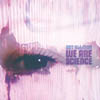 I became intrigued with the idea of hearing Dot Allison's new recordwhen I read a quote from her citing Psychic TV as a band she reallyenjoys. I already owned her debut solo album, 'Afterglow,' which Ifound to be a guilty pleasure of a sultry, yet simple, pop record. So,the notion that she takes influence from PTV left the impression on methat 'We Are Science' might bear a reflection of the cult legend. Well,I didn't really notice such an influence, but I can report thatAllison's new record is a step away from the mainstream, radio-friendlyleanings of her last album. It kicks off with "We're Only Science,"full of low, throbbing beats, exotic synth-y touches and sexy vocals,and based on this, I was actually expecting a lot from the remainingtracks. While not a complete let down, the rest of the album is not aswell-developed as the opening cut. "Substance," which seems likesomewhat of an attempt to cash in on the current "electroclash" trend,is nonetheless catchy. "You Can Be Replaced" and "Strung Out" embracesome of the same straightforward pop aesthetic found on 'Afterglow,'and remain enjoyable, but unfortunately, the six other tracks arelargely forgettable. They're either slow and sappy or just plainboring. The US version of the album comes with two remixes, one of"Substance" by Felix da Housecat and one of "We're Only Science" byKeith Tenniswood of Two Lone Swordsmen (who also assisted in thealbum's production), both of which turn the originals into cheesy housemusic and are borderline tacky. Dot Allison strikes me as a genuinelytalented vocalist (she formerly fronted early '90s trip hop outfit OneDove) and songwriter. 'We Are Science' is a demostration of thedevelopment of her own style, but she still seems to have a long way togo.
I became intrigued with the idea of hearing Dot Allison's new recordwhen I read a quote from her citing Psychic TV as a band she reallyenjoys. I already owned her debut solo album, 'Afterglow,' which Ifound to be a guilty pleasure of a sultry, yet simple, pop record. So,the notion that she takes influence from PTV left the impression on methat 'We Are Science' might bear a reflection of the cult legend. Well,I didn't really notice such an influence, but I can report thatAllison's new record is a step away from the mainstream, radio-friendlyleanings of her last album. It kicks off with "We're Only Science,"full of low, throbbing beats, exotic synth-y touches and sexy vocals,and based on this, I was actually expecting a lot from the remainingtracks. While not a complete let down, the rest of the album is not aswell-developed as the opening cut. "Substance," which seems likesomewhat of an attempt to cash in on the current "electroclash" trend,is nonetheless catchy. "You Can Be Replaced" and "Strung Out" embracesome of the same straightforward pop aesthetic found on 'Afterglow,'and remain enjoyable, but unfortunately, the six other tracks arelargely forgettable. They're either slow and sappy or just plainboring. The US version of the album comes with two remixes, one of"Substance" by Felix da Housecat and one of "We're Only Science" byKeith Tenniswood of Two Lone Swordsmen (who also assisted in thealbum's production), both of which turn the originals into cheesy housemusic and are borderline tacky. Dot Allison strikes me as a genuinelytalented vocalist (she formerly fronted early '90s trip hop outfit OneDove) and songwriter. 'We Are Science' is a demostration of thedevelopment of her own style, but she still seems to have a long way togo.
samples:
- We're Only Science
- Strung Out
- Substance (Felix da Housecat remix)



